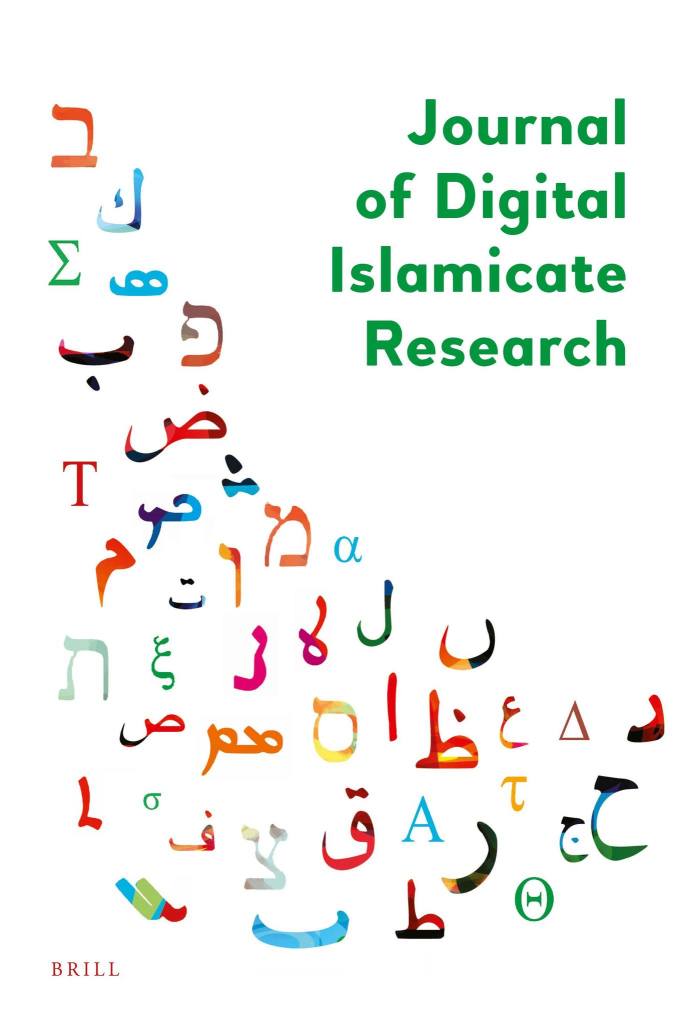A Special Issue for the Journal of Digital Islamicate Research (Brill)
The field of Cultural Analytics (CA) studies massive amounts of cultural data (books, images, newspapers, literature, etc.) in order to derive culturally-relevant insights from them. It applies various methods and techniques (natural language processing, network analysis, visualization, and data mining) to cultural components in a manner that makes them useful for humanities research. This Special Issue focuses on issues and challenges pertaining to the praxis of Digital Humanities (DH) in non-Western geographical contexts, countries, and cultures, especially, though without being limited to, Arabic. This multidisciplinary special issue will bring together world-renowned experts and their unique expertise and skills in the field of Digital Humanities with the aim of advancing the current state of knowledge for all researchers in non-Western literature, culture, media, arts, history, linguistics, political science, and sociology. Samples of their work under DH projects will be presented to map out the revolutionary trends and fluctuations in Arabic Digital Humanities, a matter which puts us in a better position to understand this ongoing phenomenon. All in all, this special issue will explore all digital approaches applied to Arabic and other Islamicate languages including text mining and computational analysis, as well as network and spatial analysis of non-Western social, political and historical transformations. We are especially interested in the development of Digital Humanities tools and platforms designed for the distinctive challenges of Arabic studies scholarship.
Contributions are welcome based on the originality and strength of the work and its specific relevance to the themes of the special issue. This issue will help to initiate an inquiry that will further enhance our commitment to knowledge dissemination and to provide researchers in Arab universities with the needed resources to share their intellectual contributions and engage western academia in an enriching conversation about Arabic Digital Humanities.
Submissions
We invite submissions which include scholarly inquiry into uses of digital technologies with Arabic and Islamicate languages; digital humanities and cultural analytics projects that focus on Arab/Muslim history and culture; Islam and digital theory; the intersection of Arab studies and digital humanities; digital tools and artifacts; Arabic/Islamicate digital humanities and memory; social media and Arab/Muslim activism/movements, etc. The special issue also invites submissions which include scholarly inquiry into Arab diasporic uses of digital technologies.
Topics may include, but are not limited to, the following:
- Computational literary studies, literary text mining and network analysis
- Cultural Analytics for Modern Arab/Islamicate Worlds
- Spatial analysis and mapping of Arabic/Islamicate languages.
- DH and the epistemologies of the Arab/Muslim World
- DH and Arab/Muslim critical perspectives
- DH and cultural criticism
- DH and Activism
- Islam and digital theory
- Critique of DH
- Postcolonial DH
- Evaluating digital scholarship in the Arabic/Islamicate context
- Digital hegemonies
- DH and alternative methodologies
- Technical challenges of DH with non-anglophone and non-Latin material
- DH and local communities
- DH and intercultural problems
- DH and multilingualism
- DH and social/political change in the Arab/Muslim World
- DH and citizen-driven innovation from the Arab world
- DH and big data from the Arab world
- DH and digital media
- DH and machine translation
Proposal Submissions
We invite submissions from graduate students, academics, librarians, and independent scholars. Abstracts (of no more than 500 words, excluding references) describing the scope, methodology and initial results should be emailed to: jdir@brill.com by 30 December 2022. Abstracts will be reviewed, and authors of the accepted proposals will be invited to submit their full papers (7000-8000 words) by 30 March 2023. All papers will be subject to a double-blind review.
Important dates:
30 December 2022: Submission of abstracts (of no more than 500 words, excluding references)
15 January 2023: Feedback on proposals
30 March 2023: Submission of first draft (7,000-8,000 words, excluding an abstract of 250 words and bibliography) of accepted proposals for peer review.
The publication date of the special issue is expected in 2023.
**Papers may be submitted in either English or Arabic**

